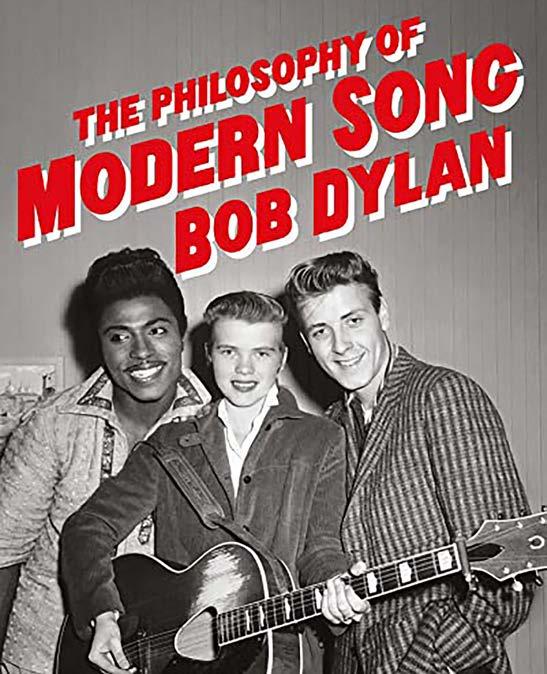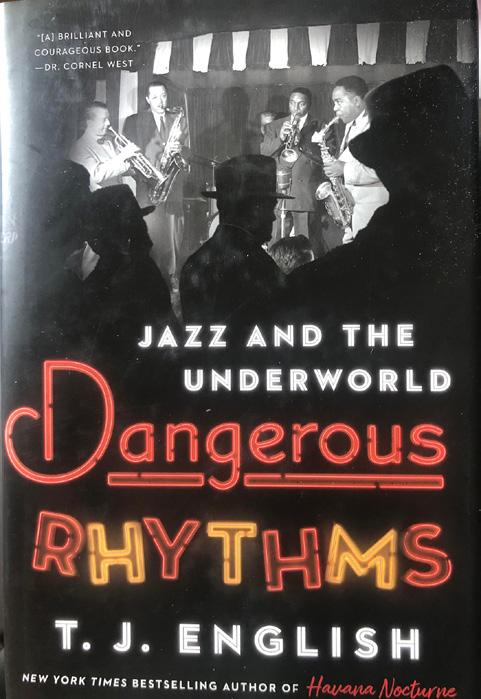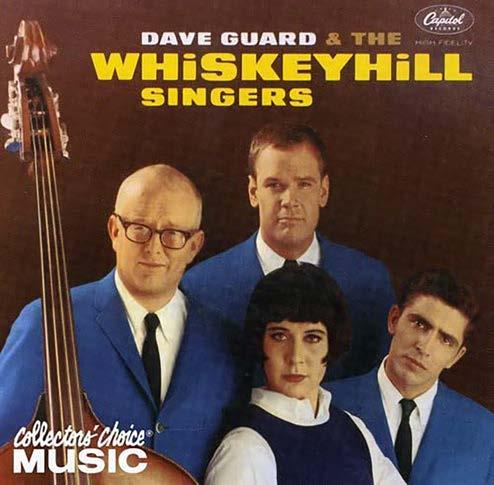
8 minute read
RONNIE) CHARLES IN CHARGE
The remarkable resurrection of the great lost record of the ’70s.
By Jeff Jenkins
Advertisement
Ronnie Charles
So I went around to his place. He had two strange women hanging out with him and the heating turned up to 35 degrees, because he was from California. I played him the tape and he got on the phone that night to CBS in New York: “I’ve found the next Beatles, give me some studio time.” Instead of doing three or four demos, he said, “We’re going to be here all night and you’re going to put down 10 tracks.” He then took that tape and hawked it around London, getting interest from Elton’s new label [Rocket] and Warners. And Warners took out the cheque book and we got a deal. And that’s how I met Lou. Lou Reizner was an American producer and recording executive who relocated to London in the ’60s. He produced Rod Stewart’s first two solo albums, as well as the orchestrated version of The Who’s Tommy.
What was Lou like?

He was the old-style producer. He’d sit in the chair and he had the right engineer and the right arranger. He and Shel Talmy were two young American producers who went to London post-Beatlemania because they wanted to be where the action was. Shel kept kicking goals [producing The Who, The Kinks and The Easybeats] and there was a healthy rivalry between the two. Lou was like a young Phil Spector, he loved the extravaganza, which is why I think he took on the Tommy thing.
Rick Springfield says, “It’s the greatest album no one’s ever heard of.” At the time, it was the most expensive album ever produced in the UK. And then it sank without a trace. This is the strange tale of Prestidigitation, the debut solo album for Australia’s Ronnie Charles, produced by Lou Reizner and featuring the London Symphony Orchestra and the 80-voice English Chamber Choir. Charles had been the lead singer of Melbourne band The Groop, who released one of the great ’60s singles, ‘Woman You’re Breaking Me’, and relocated to London after winning the Hoadley’s Battle of the Sounds. Charles realised that if he was serious about making it in the music business, the UK was where he needed to be.
This story really starts in London when Charles had a chance encounter with American impresario Kim Fowley, “the Duke of Dreams”, who also called himself “the missing link between Chuck Berry and Orson Welles”, as well as “a piece of shit, moron, genius and rock and roll outlaw”. Fowley created The Runaways, co-wrote The Seekers’ ‘Emerald City’, and worked with Kiss, Helen Reddy and Alice Cooper.
How did you meet Kim Fowley?
It was fairytale stuff. I was standing at the bar after a gig at The Pheasantry and he came up and said, “I really like your singing, man … I hear you’re Australian. I’ve just been doing some PR for Daddy Cool in LA.” (Fowley greeted the band in a wheelchair at LA Airport. He rolled through the crowd, yelling, “I’ve got to speak to Daddy Cool!” He then leapt from the chair, screaming, “I can walk! Daddy Cool cured me!”) I told him about my band, Atlas. Don Arden [legendary manager and father of Sharon Osbourne] had given us some demo time, but it was so hard getting a record deal in London in 1972. “Give me a tape,” Kim said.

With Atlas, I wanted to get an American producer, because most of the English producers were like Mickie Most, producing singles, whereas we were very much an album band.
After producing Atlas’s self-titled debut, Reizner got Charles a role in the 1973 London production of Tommy, replacing Richie Havens as “The Hawker”, as well as being the understudy to Roger Daltrey.
What’s your main memory of Tommy?
How crazy Keith Moon was! He was playing frisbee with plates in the dressing room. He and Viv Stanshall from the Bonzo Dog DooDah Band were completely insane. Merry Clayton was a fabulous singer. And I was in awe of Richie Havens. Rehearsing with him, doing the same song and getting a pat on the back from him was very encouraging.

Ronnie Charles with Eric Clapton

After the success of Tommy, Lou Reizner and Pete Townshend had an idea – an orchestrated version of Derek and the Dominos’ ‘Layla’. Eric Clapton was in a bad place at the time, with a heroin addiction. Pete did a show in London with Eric, to get him back on stage. I think Pete was the instigator of the idea of
Lou Reizner
doing ‘Layla’ with the London Symphony, and I think he wanted Eric to sing it. But when that didn’t happen, Lou still wanted to do it, so he got me. Eric actually came to the studio and he said, “You’ve done a great job, I don’t think I could have done it again.” Because the song is quite high. After releasing two singles in the UK – ‘Layla’ and a cover of Free’s ‘Wishing Well’ – Reizner got Charles a deal with 20th Century Records, the music arm of the movie studio 20th Century Fox. The label was run by an American, Russ Regan, who had been Sonny Bono’s original singing partner, in a band called the Checkmates. Lou wanted to do something like a Bowie album, a concept album. But when ‘Layla’ got the attention it did, he changed tack, and 20th Century said, “We’ll put the money in, but we want to hear covers of hit songs.” So the whole thing got a little shuffled up. The album was initially quite English-centric, but 20th Century wanted to put some current American stuff on there, so we did a version of ‘Drift Away’ (which you can find on YouTube) and a Barry Mann song, ‘Nobody But You’. I didn’t want them on there. As Kim Fowley said when he heard the album, “You know, it’s good, but it sounds like someone dropped the masters on the way and they put the elephant’s ears where the trunk should be and the trunk where the ears should be.” And I’ve always agreed with that.
The album also includes a cover of Thunderclap Newman’s ‘Something In The Air’, featuring the song’s original singer and writer, John “Speedy” Keen.
Lou came up with that – he wanted to have a big name on the record. And that was great. Speedy was a character. He and Pete Townshend were best mates; he was like a blond version of Pete. A big drinker. When he showed up at the session, I could distinctly smell rum on his breath. But it was great doing that song with him and I really like that version. And Pete Townshend plays the guitar solo on ‘Love Reign O’er Me’. For some reason, he was never credited. But that’s his solo.
As well as Speedy Keen and Pete Townshend, the album features some great players, including Keith Tippett (King Crimson), Blue Mink’s Herbie Flowers, Ronnie Verrell (who provided the drumming for Animal on The Muppet Show), and a couple of Aussies, Kevin Peek (who later joined Sky) and Terry Britten (The Twilights).
The Groop and The Twilights had a healthy competitive rivalry – we used to duel it out at Opus on Sunday nights in the ’60s. I walked in when Terry and Kevin were doing ‘Something In The Air’. They were sitting on two high stools. I said, “G’day mate!” And they nearly fell off their stools. They had just been A few months after Prestidigitation was released, Ronnie Charles went to the US to source material for a follow-up. Reizner was meant to join him, but unbeknownst to Charles, Reizner had stomach cancer and he died in 1977, aged 43.
You’ve now tweaked a couple of things, removing ‘Drift Away’ and ‘Nobody But You’, and adding a live track from Tommy (‘Eyesight To The Blind’).
That was recorded by Radio 2 and I thought it was good to include it because it was part of the whole story. The album is now closer to what we were originally aiming for. But I don’t regret anything. To quote Game of Thrones, you’re exactly where you’re supposed to be. At 74, I’m still here, so I must have done something right.
Did the album get an Australian release?
It did, about two years later. A dreadful pressing on cheap vinyl and cheap Aussie cardboard. And it was smack-bang in the middle of disco and punk. I wasn’t here, I knew nothing about it. Then, a few years ago, the Coodabeen Champions called me out of the blue. “What’s this album you did in London? We wanna do an interview with you on the radio.” A couple of people suggested re-releasing it, and then [Zoot’s manager] Bruce Hutchins came along and suggested doing a vinyl release.
How do you feel about Prestidigitation 47 years after it was released?
I’m glad we’ve done it [reissued the record]. It was the biggest thing I ever did. I don’t have any expectations. But it’s good for some collectors and nice to see it recognised in some way. To me, this album is like a Tubular Bells. It’s part of the Lou Reizner story, one of the missing links in his story. It’s a Lou Reizner album as much as it’s mine.












